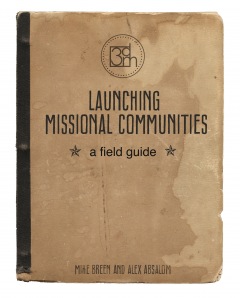 John Dickson’s The Best Kept Secret of Christian Mission is worth reading. When I read the earlier version of this book called Promoting the Gospel, several of Dickson’s contentions lodged in my mind, so much that I read some of his Ph.D work. I wrote about this here. Below is a guest review of Dickson’s new book by my good friend, Juan Sanchez. Juan is Preaching Pastor at High Pointe Baptist Church in Austin, Texas and a member of the Gospel Coalition.
John Dickson’s The Best Kept Secret of Christian Mission is worth reading. When I read the earlier version of this book called Promoting the Gospel, several of Dickson’s contentions lodged in my mind, so much that I read some of his Ph.D work. I wrote about this here. Below is a guest review of Dickson’s new book by my good friend, Juan Sanchez. Juan is Preaching Pastor at High Pointe Baptist Church in Austin, Texas and a member of the Gospel Coalition.
Whenever I hear someone offer a “secret†I become suspicious because it has a Gnostic ring to it, and in fact, the Bible reminds us that there is nothing new under the sun. Nevertheless, I sense that John Dickson uses the word secret, not so much in the, “I’m about to tell you something no one else knows or has ever heard†sense, but in the sense of, “this is so obvious from the Scriptures, yet evangelicals seemed to have missed this fact that it may as well be a secret.â€
Promoting the Gospel
So then, just what is the best kept secret in Christian mission? The subtitle tells it all – we are called to promote the gospel, not just with our lips but with our very lives. The best kept secret of Christian mission, Dickson suggests, “is that the Bible lists a whole range of activities that promote Christ to the world and draw others toward him†(22). To be sure, Dickson does “not want to diminish the role of speaking†(22). Dickson’s concern is to proclaim a holistic gospel to the world with both our lips and our lives. Consequently, he distinguishes “between the specific activity of proclaiming the gospel and the broader category of promoting the gospel†(23). The point Dickson wishes to emphasize is that this broader category of gospel promotion has largely gone unnoticed in modern evangelistic training methods and practices. For this reason Dickson want to recover biblical practices that promote the gospel: i.e., flexible social relationships (chapter 3), prayer (chapter 4), financial support of the gospel (chapter 5), good works of the church (chapter 6), good works of individual Christians (chapter 7), corporate praise/worship of God’s people (chapter 10).
The Gospel & Western Distortions
Rightly, Dickson does not believe that an emphasis on gospel promotion denies gospel proclamation (chapter 11). Dickson insists that, “there are clear New Testament passages urging us all to speak up for Christ when we can†(101). Yet, even in our gospel proclamation, evangelicalism has tended to offer a truncated gospel. Therefore, Dickson spends the greatest amount of time answering the question, “What is the Gospel†(chapter 8)? Dickson argues that the gospel is the announcement of the arrival of King Jesus, but it is not a mere announcement about an idea. “The core content of the gospel is the work of God’s anointed king, Jesus†(115). Dickson continues, “Through his birth, miracles, teaching, death and resurrection God’s kingdom has been manifested (and will be consummated upon his return)†(115). Of course, part of the core content of this gospel is the reality that, “Jesus’ sacrificial death atoned for the sins of those who would otherwise be condemned at the consummation of the kingdom†(119). This holistic gospel combats the gospel reductionism that has been so prevalent in twentieth century evangelism.
I am thankful for John Dickson’s helpful reminder of what is often neglected in evangelism – the clear call to proclaim Christ with our lives as well as our lips. I trust every Christian has a desire to share the gospel with those who do not know Christ, but not all of us are comfortable doing so. Dickson admits there are several common problems with evangelism as it has been taught and practiced in Western evangelicalism: self-consciousness, gospel data download, gospel reductionism, and mission reductionism (Introduction). He also highlights the major cultural challenge evangelism faces in our day: pluralism (chapter 2). Equally helpful, Dickson admits that we are not all called to be evangelists (chapter 9); however, he insists that we are all called to promote the reality of the one true Lord/King to all peoples everywhere (chapter 1). For those who have questions as to what gospel proclamation/promotion looks like, Dickson provides a practical application example in chapter 12. He also suggests ways we can address particular questions raised by those who do not believe (Appendix 1).
Conclusion
The Best Kept Secret in Christian Mission is a much helpful book for those who struggle with evangelism as well as those who desire better to understand biblical evangelism. Thankfully, evidence is growing that among younger evangelicals promoting the gospel with our lives is not much of a secret any longer. Nevertheless, Dickson’s reminder that we must both proclaim the gospel AND promote the gospel should warn against going to the other extreme of gospel promotion without gospel proclamation. May the Lord grant us grace to be faithful heralds of the kingdom.
Reviewed by Juan Sanchez, Preaching Pastor at High Pointe Baptist Church
 Gospel Centered Discipleship
Gospel Centered Discipleship


